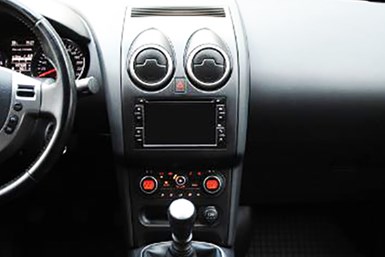Eastman Touts Bio-Plastic for Interior Applications
Eastman Chemical Co. says is touting a “green” alternative to traditional petroleum-based plastics for Class-A painted interiors surfaces.
#interior
Kingsport, Tenn.-based Eastman Chemical Co. says it has developed a “green” alternative to traditional petroleum-based plastics for Class-A painted interiors surfaces.

The company’s Treva cellulose-based thermoplastic is derived from trees and other recycled materials. Nearly 50% of the material’s content is bio-based, according to the supplier.
Eastman’s carbon renewal technology breaks down waste plastics into molecular-level building blocks, which enables the materials to be reused instead of being sent to a landfill. The company expects to use 50 million lbs. of waste plastic next year.
Eastman claims there is no performance degradation or cost penalty in the recycled biomaterial. The company says Treva also has exhibited similar or better paint adhesion characteristics than polycarbonate-ABS plastics in tests.
RELATED CONTENT
-
Choosing the Right Fasteners for Automotive
PennEngineering makes hundreds of different fasteners for the automotive industry with standard and custom products as well as automated assembly solutions. Discover how they’re used and how to select the right one. (Sponsored Content)
-
Multiple Choices for Light, High-Performance Chassis
How carbon fiber is utilized is as different as the vehicles on which it is used. From full carbon tubs to partial panels to welded steel tube sandwich structures, the only limitation is imagination.
-
On Fuel Cells, Battery Enclosures, and Lucid Air
A skateboard for fuel cells, building a better battery enclosure, what ADAS does, a big engine for boats, the curious case of lean production, what drivers think, and why Lucid is remarkable








